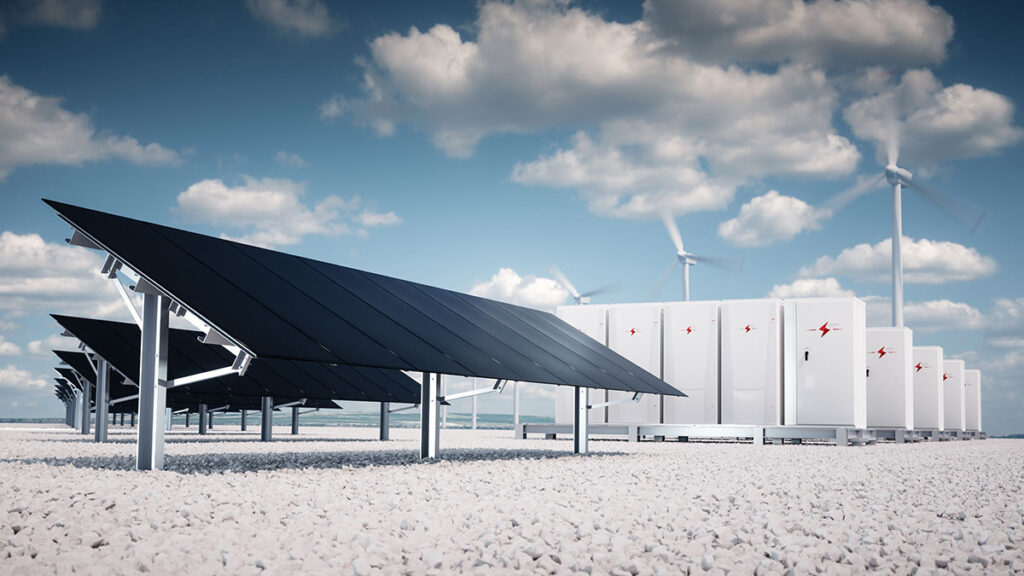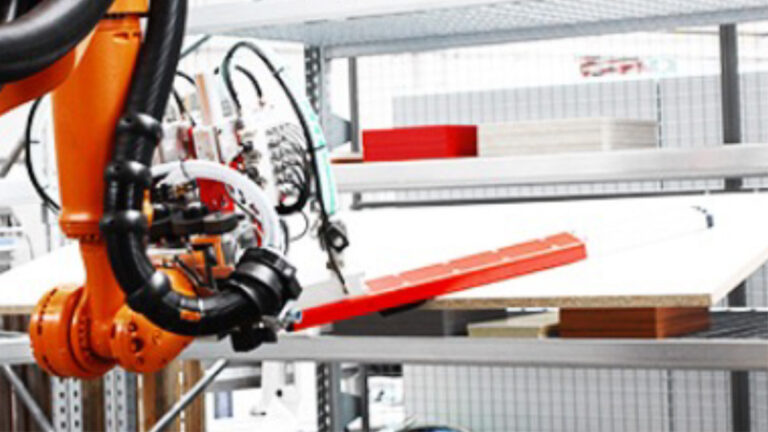L’ENGINEERS supports your company in setting up a sustainable energy management system and developing a customized energy supply concept. To this end, material flows are evaluated, energy consumption is analyzed, optimization potential is identified and suitable measures for improving energy efficiency are listed. By implementing the measures, your company can reduce energy costs, increase competitiveness and resilience, comply with environmental regulations and reduce its ecological footprint at the same time.

The implementation of sustainable energy management offers both economic and ecological benefits:
- Increasing energy efficiency is a key component of sustainable energy management. By using energy-efficient technologies, optimizing processes and raising employees’ awareness of energy-saving measures, companies can significantly reduce their energy consumption and cut running costs.
- Intelligent control of the energy load can help to reduce peak loads and distribute energy consumption more efficiently. By using load management technologies, companies can optimize their energy requirements.
- The implementation of a comprehensive monitoring and analysis system enables your company to track and analyze energy consumption in detail. This allows bottlenecks and inefficient areas to be identified so that targeted measures can be taken to improve energy efficiency.
- The use of specialized software solutions can help your company manage and optimize energy consumption. Such software enables better monitoring, analysis and reporting of energy consumption data as well as the automation of energy-related processes.
- Involving employees and raising their awareness of sustainable energy management has a major impact. Through training and awareness-raising, employees can be motivated to practice energy-efficient behavior and contribute innovative ideas for saving energy.
The energy and heating transition plays a central role in the transformation of the energy system and the sustainable provision of energy. Companies must reduce their dependence on fossil fuels and increasingly switch to renewable energies. At the same time, the heat transition is aimed at making heat consumption in the company more efficient and environmentally friendly through sensible measures. For the wood-processing industry, the utilization of residual materials is an important aspect of a sustainable energy supply. By using various technologies such as wood gasifiers and ORC systems, the residual materials can be efficiently converted into energy through combined heat and power generation. These residual materials are not only put to good use, but also become an alternative source of energy that can be used to generate electricity and heat.

Key points in the design of a sustainable energy supply concept are:
- The integration of renewable energies into the energy mix. This is an essential component of sustainable energy management strategies. The use of solar energy, wind power and heat pumps reduces dependence on fossil fuels and cuts CO2 emissions.
- Decentralized energy supply involves generating energy at the point of consumption in order to minimize transport losses. This can be achieved, for example, by installing solar systems on roofs, small wind turbines or wood gasifiers with combined heat and power generation. In addition, decentralized energy generation reduces the need for long transmission lines and increases energy independence.
- A sustainable energy supply also requires efficient energy storage. The use of battery storage, thermal storage or other storage technologies makes it possible to store surplus energy from renewable sources and retrieve it when needed. This not only ensures a continuous energy supply, but also allows expensive load peaks to be balanced out.
- The electrification of various sectors plays an important role in sustainable energy concepts. The use of electric vehicles, electric heat pumps and electric industrial processes can reduce the use of fossil fuels.
Thanks to our many years of experience in the wood-processing furniture industry, we at L’ENGINEERS know the structures and production processes within companies in the wood and furniture industry. This experience helps us to create a sustainable and long-term energy concept for your company.




